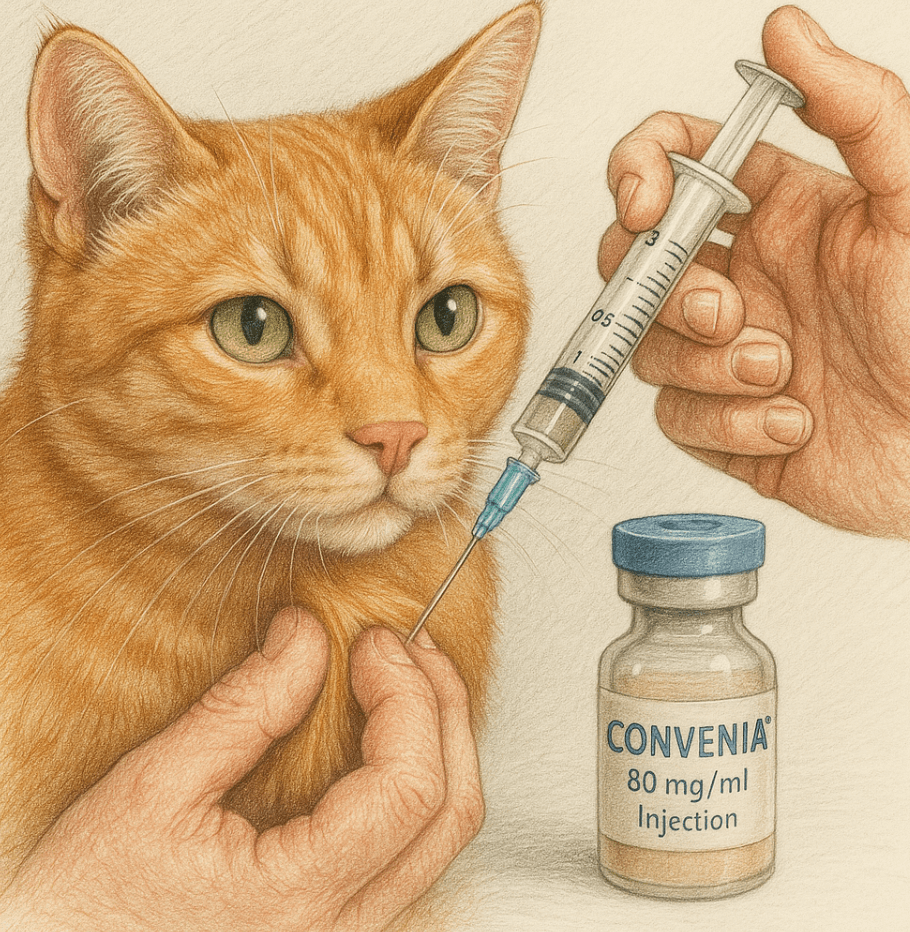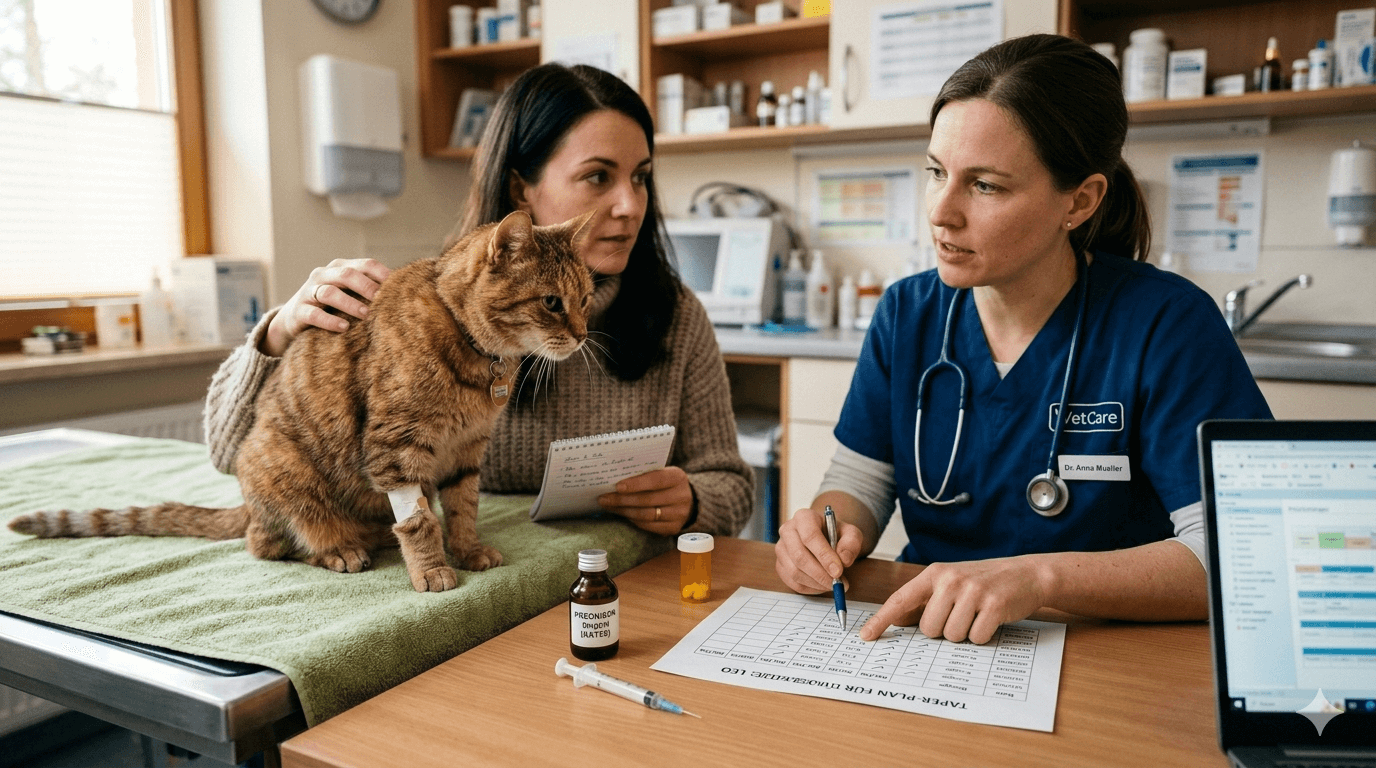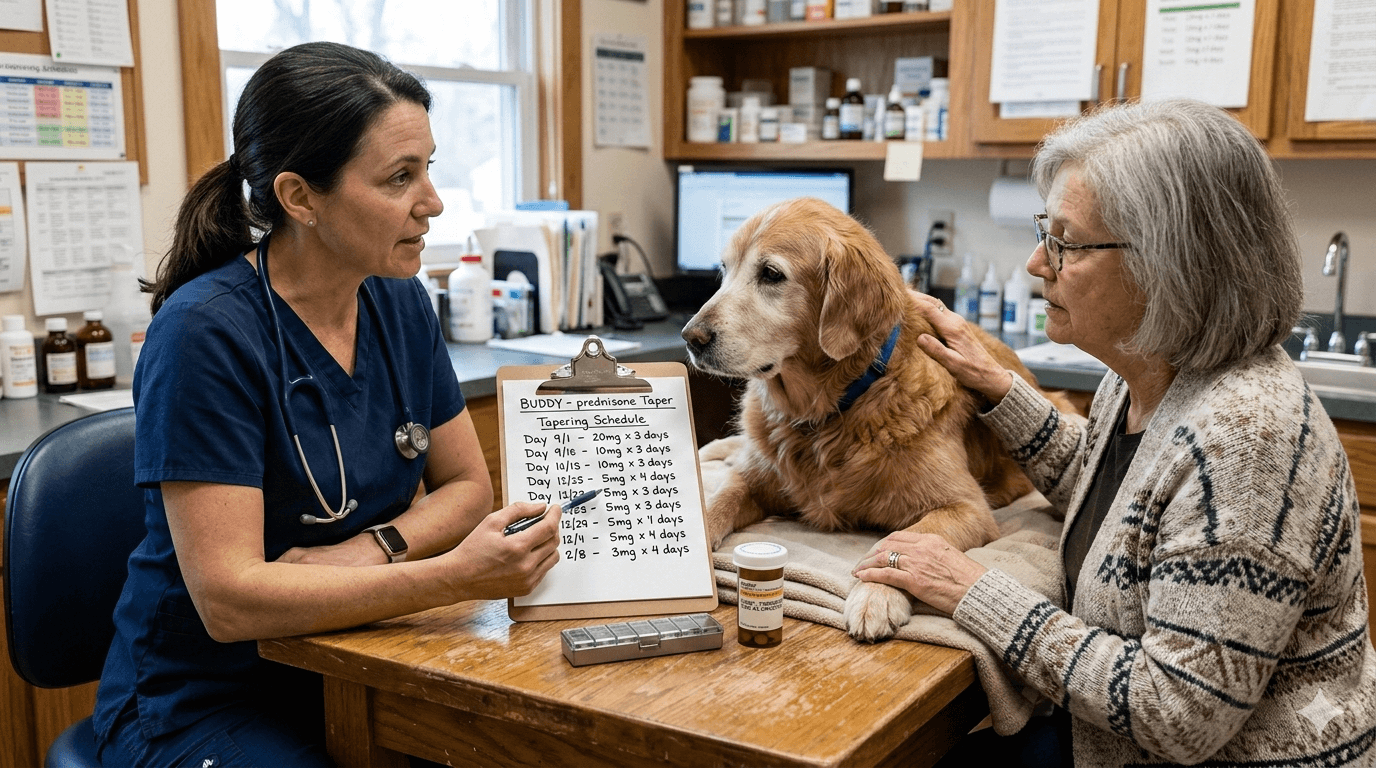Convenia Injection for Cats: What You Need to Know
When it comes to treating infections in cats, veterinarians often recommend Convenia, a long-acting antibiotic injection. While this medication offers convenience and effectiveness, many cat owners have questions about its use, benefits, and potential side effects. Convenia is particularly helpful for cats that resist oral medications or require extended treatment. However, like any medical intervention, it’s essential to understand how it works, when it’s appropriate, and what precautions to take. In this blog post, we’ll explore everything you need to know about the Convenia injection for cats, ensuring you’re well-informed to make the best decisions for your feline companion.
Expert Insight: The Role of Convenia in Feline Antibiotic Treatment
“Convenia is a long-acting antibiotic, its half-life in cats lasts for 7 days from the day of injection, and its concentration will continue to decline until about 14 days. This makes it a valuable option for pet parents who struggle to give their cat tablets or liquid medication consistently. However, despite being convenient and easy to use, it should only be used in certain situations.”
What Is Convenia and How Does It Work?
Convenia is an injectable antibiotic designed to treat bacterial infections in cats. Its active ingredient, cefovecin sodium, belongs to the cephalosporin class of antibiotics, which are known for their broad-spectrum effectiveness. Here’s a closer look at how Convenia functions and why it’s commonly prescribed.
Long-Lasting Effectiveness:
A single Convenia injection can last up to 14 days, providing continuous protection against bacterial infections without the need for daily dosing.Broad-Spectrum Coverage:
Convenia targets a wide range of bacteria, making it effective for conditions like skin infections, dental abscesses, and urinary tract infections.Ease of Administration:
The injection is administered by a veterinarian, eliminating the stress and hassle of giving oral medications at home.Rapid Onset of Action:
Convenia begins working quickly after injection, helping to alleviate symptoms and combat infections within hours.Ideal for Difficult Patients:
For cats that are aggressive, anxious, or refuse oral medications, Convenia offers a practical solution.
Understanding these key features helps explain why Convenia is a popular choice among veterinarians and pet owners alike.

Common Conditions Treated with Convenia
Convenia is particularly effective for treating specific types of bacterial infections in cats. Here’s a breakdown of the conditions where this antibiotic proves beneficial.
Skin Infections (Pyoderma):
Convenia is often prescribed for skin infections caused by Staphylococcus bacteria, which can lead to itching, redness, and irritation.Abscesses:
Bite wounds or injuries can result in abscesses, and Convenia helps clear the underlying bacterial infection.Urinary Tract Infections (UTIs):
For cats suffering from UTIs, Convenia targets the bacteria responsible for discomfort and frequent urination.Respiratory Infections:
Upper respiratory infections caused by susceptible bacteria can be treated effectively with Convenia.Dental Infections:
Tooth abscesses and gum infections benefit from Convenia’s ability to penetrate oral tissues and eliminate harmful bacteria.
These applications highlight Convenia’s versatility as a treatment option for various feline health issues.
Check this guide 👉Can I Give My Cat Vaccines Myself? Best 7 Expert Tips!
Check this guide 👉Understanding the FVRCP Cat Vaccine: Best 7 Health Tips!
Check this guide 👉Why Is My Cat Tired After Vaccines? Best 7 Expert Tips!
Benefits of Convenia | Potential Side Effects to Watch For |
|---|---|
Long-lasting coverage (up to 14 days) | Vomiting or nausea |
No need for daily oral medication | Diarrhea or loose stools |
Effective against a wide range of bacteria | Lethargy or decreased appetite |
Reduces stress for difficult patients | Allergic reactions (rare) |
Rapid onset of action | Injection site swelling or pain |
How to Prepare Your Cat for a Convenia Injection
Before your cat receives a Convenia injection, there are steps you can take to ensure the process goes smoothly and your cat remains comfortable.
Consult Your Veterinarian:
Discuss your cat’s medical history and any ongoing medications to ensure Convenia is safe and appropriate.Monitor Symptoms:
Keep track of your cat’s symptoms, such as fever, swelling, or behavioral changes, to help your vet diagnose the issue accurately.Understand the Dosage:
Ask your vet about the dosage and duration of Convenia’s effects to manage expectations and plan follow-up care.Prepare for Observation:
After the injection, observe your cat closely for any adverse reactions or improvements in their condition.Plan for Post-Treatment Care:
Provide a quiet, comfortable space for your cat to recover and avoid activities that may stress them during treatment.
Taking these steps ensures your cat receives the best possible care while minimizing potential complications.
Signs Your Cat May Need Convenia
Recognizing the signs of a bacterial infection can help you determine whether your cat might benefit from a Convenia injection. Look out for these symptoms that warrant veterinary attention.
Persistent Scratching or Licking:
Excessive grooming behavior may indicate a skin infection requiring treatment.Redness or Swelling:
Visible inflammation on the skin or around wounds suggests the presence of bacteria.Frequent Urination or Straining:
Difficulty urinating or blood in the urine points to a possible urinary tract infection.Loss of Appetite or Energy:
Sudden lethargy or refusal to eat could signal an underlying infection affecting your cat’s overall health.Discharge or Odor:
Unusual discharge from the eyes, ears, or gums, accompanied by a foul smell, indicates a potential bacterial issue.
Identifying these signs early allows for prompt treatment and faster recovery.
Alternatives to Convenia
If Convenia isn’t suitable for your cat, there are alternative treatments available. These options provide flexibility based on your cat’s condition and preferences.
Oral Antibiotics:
Medications like amoxicillin or clindamycin are effective alternatives but require daily administration.Topical Treatments:
For localized infections, topical creams or sprays may suffice without the need for systemic medication.Natural Remedies:
Some pet owners opt for natural solutions like coconut oil or herbal supplements, though these should always be discussed with a vet.Supportive Care:
Hydration, rest, and a clean environment can aid recovery alongside traditional treatments.Lifestyle Adjustments:
Improving diet, reducing stress, and maintaining hygiene can prevent recurring infections.
Exploring these alternatives ensures your cat receives tailored care that suits their individual needs.
Tips for Monitoring Your Cat After Treatment
After receiving a Convenia injection, monitoring your cat’s progress is crucial for ensuring their recovery goes smoothly. Follow these tips to stay vigilant.
Track Behavioral Changes:
Note any shifts in activity levels, appetite, or mood, as these can indicate improvement or complications.Check the Injection Site:
Inspect the area daily for signs of swelling, redness, or discomfort.Maintain a Clean Environment:
Keep your cat’s living space clean to reduce the risk of reinfection or irritation.Provide Nutritious Meals:
Offer high-quality food to support your cat’s immune system during recovery.Schedule Follow-Up Appointments:
Regular check-ins with your vet ensure the infection is resolving as expected.
By staying attentive, you can catch potential issues early and promote a speedy recovery.
Preventing Future Infections
Prevention is key to keeping your cat healthy and minimizing the need for antibiotics like Convenia. These proactive measures can reduce the risk of bacterial infections.
Regular Grooming:
Keeping your cat’s coat clean and free of mats prevents skin irritation and infections.Dental Hygiene:
Brushing your cat’s teeth or providing dental chews reduces the risk of gum disease and abscesses.Vaccinations:
Staying up-to-date on vaccines protects against illnesses that weaken the immune system.Avoiding Stressful Situations:
Minimize exposure to stressful environments, which can compromise your cat’s immunity.Prompt Veterinary Care:
Addressing minor health issues early prevents them from escalating into serious infections.
By adopting these preventative strategies, you can safeguard your cat’s health and enjoy peace of mind.
Frequently Asked Questions About Convenia for Cats
Is Convenia safe for all cats?
While generally safe, Convenia may not be suitable for cats with certain allergies or pre-existing conditions. Always consult your vet.
Can Convenia be used for viral infections?
No, Convenia only treats bacterial infections and is ineffective against viruses like feline herpesvirus.
What if my cat has a reaction to Convenia?
Contact your veterinarian immediately if you notice severe side effects like difficulty breathing or facial swelling.
How long does Convenia stay in a cat’s system?
Convenia remains active for approximately 14 days, providing extended protection against bacterial infections.
Can I combine Convenia with other medications?
Inform your vet about all medications your cat is taking to avoid potential interactions.
Making Informed Decisions About Convenia for Your Cat
The Convenia injection is a valuable tool in managing bacterial infections in cats, offering convenience and effectiveness for both pets and their owners. By understanding its uses, benefits, and potential risks, you can work with your veterinarian to determine whether it’s the right choice for your cat’s needs. Remember, every cat is unique, and careful observation, communication with your vet, and proper post-treatment care are key to ensuring a successful recovery. With the right approach, Convenia can help your feline friend return to their happy, healthy self in no time.
How to Taper Off Prednisone for Cats: Best 7 Expert Tips! – Safely reduce prednisone with vet guidance. Learn now!
How to Taper Off Prednisone Schedule for Dogs: Best 7 Tips! – Learn the safe way to reduce prednisone, recognize withdrawal signs, and keep your dog healthy during the process.
Can a Cat Scratch Give You Rabies? Best 7 Expert Tips! – Learn how rabies spreads, assess risks from cat scratches, and know when to seek medical help. Stay safe!
Can a Dog Scratch Give You Rabies? Best 7 Expert Tips! – Learn the risks, symptoms, and steps to take if scratched by a dog. Stay informed and protect yourself from rabies exposure.




